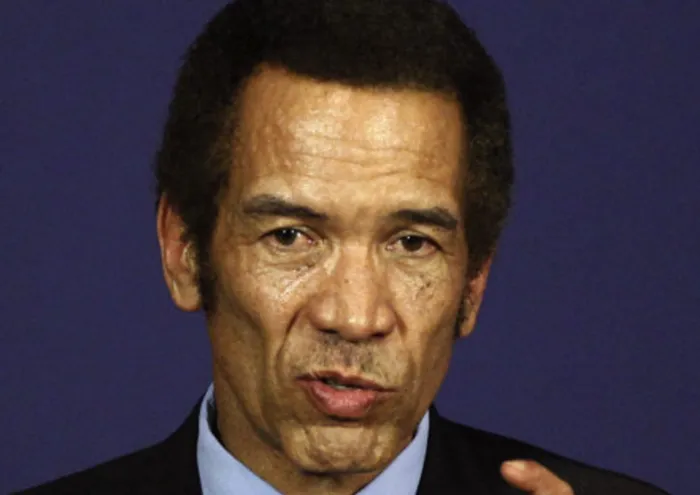Botswana’s growth to slow

The president of Botswana, Ian Khama. File picture: Siphiwe Sibeko The president of Botswana, Ian Khama. File picture: Siphiwe Sibeko
Gaborone - Botswana’s economy will experience a moderate 3.7 percent growth rate in 2016 as water and power supply deficits continue to weigh on productivity in the mining, manufacturing and construction sectors.
In a new report released on May 30, the British-based Business Monitor International (BMI) think-tank said, while the Botswana government has committed millions to the improvement of infrastructure to ease the shortages, such projects would only start having an impact after 2018.
According to the World Bank, Botswana’s economy grew at 4.9 percent last year.
“Water and power issues will remain key challenges to the Botswana economy in 2016. The Bank of Botswana highlighted the utilities shortages as major challenges for the private sector in its Business Expectations Survey conducted in September 2015.
“The ongoing drought and its effects on water supply and power generation will weigh on the economy's more positive drivers, namely the government's efforts to attract fixed investment into infrastructure, an Economic Stimulus Package (ESP) [meant] to boost economic growth, as well as efforts to diversify the economy,” read part of the analysis.
As a result, BMI said, national GDP growth would register a moderate growth rate of 3.7 percent in 2016 and pick up to 4.1 percent in 2017, spurred by consistency in the growth of the service sector which includes the hotel, trade, finance and retail businesses.
Read also: Zim won’t be dollar fishing pond
However, power woes were expected to persist beyond 2017. “The country - as well as much of the sub-Saharan African (SSA) region - is experiencing a drought and we expect that it will continue to at least until the end of 2016. This has affected Botswana's power supply which is reliant on water-intensive coal-fired generation for 80% of total power supply.
“Fixed investment in the sector has been on the rise as the government works to alleviate pressure on the economy, with Japanese company Marubeni Corporation and South Korean Posco Energy winning a government tender worth $800 million to build two additional units for the Morupule B plant, which will generate an extra 300MW of power. Nevertheless, we only forecast a significant improvement in power supply from 2018 onwards.
“As such, power shortages will continue to disrupt business operations in Botswana,” the report said.
Among other knock-on effects, the drought is expected to generate an increase in the demand for banks loans from the mining, manufacturing and agricultural sectors as they invest in projects meant to mitigate the effects of the drought, which would lead to a generalised increase in over-head and operational costs for businesses.
AFRICAN NEWS AGENCY